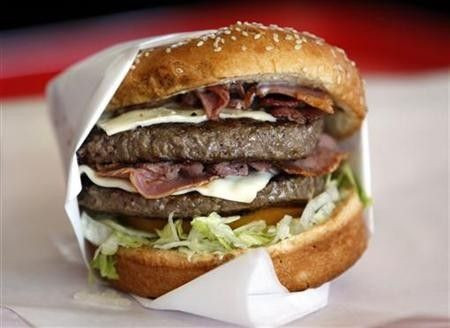American diet can make people sick within a week, suffer from type 2 diabetes

A team of researchers from the Temple University in Philadelphia conducted a unique experiment on six subjects. The intent of the researchers was to see the effect of a typical American diet on the health of the participants, and the results were astonishing.
An American, on an average, consumes around 6,000 calories in a day. Therefore, during the study, the researchers made six “healthy” men consume the same amount in a day for a period of one week. The diet provided contained almost 15 percent protein, 35 percent fats and 50 percent carbohydrates.
“It was a regular, American diet, composed of pizzas, hamburgers and that sort of thing,” said study co-author Salim Merali, in an interview with the New Scientist. “They took to the diet, and liked it.”
During the entire duration of the study, the subjects were asked not to undertake any sought of physical exercise and primarily remain bed-bound so that they can be monitored by the research team.
At the end of one week, the researchers found that, on an average, each participant had gained 3.5 kilos. In addition, they found that each one of them started to show signs of oxidative stress and insulin resistance.
When a person takes a meal, the body produces the insulin to reduce the increased blood glucose levels. However, in individuals with insulin resistance, the glucose goes unabsorbed. Therefore, the blood sugar levels remain high, causing damage to the other organs, including the heart, kidneys and nervous system. The researchers, thus, established a correlation between overeating and the development of Type 2 diabetes.
“Now that we know you can cause insulin resistance very quickly if you overeat, but what if you return to your normal eating habits with a lower caloric intake — how long will it take to go away? And does it go away at all?,” said co-author Guenther Boden, in a statement.
“We’re going to find the answer, but my guess is it’s reversible just as fast as it comes.”
Contact the writer at feedback@ibtimes.com.au, or let us know what you think below.





















